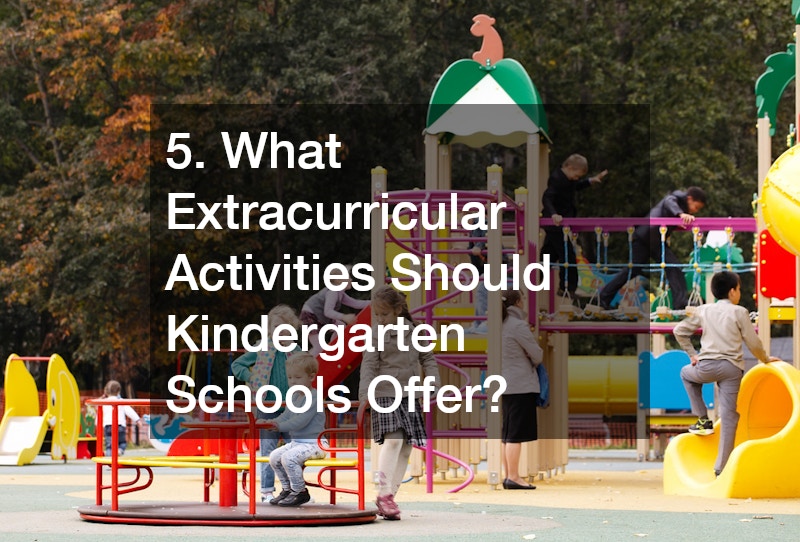Choosing a quality kindergarten school is a crucial decision that lays the foundation for a child’s educational journey. Early childhood education has a significant impact on child development, shaping their future learning capabilities and social skills.
Research has shown that these formative years are critical for brain development and emotional well-being. Thus, parents must carefully evaluate the attributes of kindergarten schools to ensure they provide comprehensive educational experiences.
A high-quality kindergarten fosters an environment where children can explore, learn, and develop essential life skills. This underscores the importance of choosing a well-rounded kindergarten program to support a child’s growth.
1. What Curriculum Should a Top Kindergarten Offer?
a. Balanced and Inclusive Curriculum
Top kindergarten schools should offer a curriculum that integrates academic learning with play-based activities. Such a balanced approach supports not only cognitive development but also social-emotional growth in young learners.
An inclusive curriculum is essential to address the diverse needs of children and foster an environment of support and inclusivity. By accommodating various learning styles and abilities, schools can nurture children’s unique potentials.
Engaging children in a variety of activities enhances their creativity and critical thinking skills. This combined approach ensures children are well-prepared for the challenges of future academic endeavors.
b. Alignment with Educational Standards
The curriculum of a top kindergarten must align with recognized educational standards and frameworks. Such alignment guarantees consistency in educational quality and outcomes.
Adhering to these standards ensures that children meet developmental milestones and academic benchmarks that are necessary for future success. It creates a structured path for learning progression while maintaining flexibility for individual learning paces.
Moreover, alignment with standards facilitates smoother transitions to higher educational levels. It ensures that foundational knowledge and skills are adequately taught and understood by children.
2. How Crucial is Teacher Quality in Kindergarten?
a. Qualified and Experienced Educators
Qualified and experienced educators form the backbone of a top kindergarten school. Their expertise in early childhood education allows them to create meaningful learning experiences.
Educators with specialized training understand the developmental needs of young children and can tailor instruction accordingly. This knowledge is vital for fostering an environment where each child can thrive and reach their full potential.
Furthermore, experienced educators are adept at managing classroom dynamics effectively. Their ability to nurture and support children helps build a solid foundation for lifelong learning.
b. Teacher-Child Interaction and Engagement
Positive teacher-child interactions play a pivotal role in early childhood education. Engaged teachers who interact well with children can significantly enhance learning outcomes and emotional well-being.
Effective communication and a nurturing approach foster a safe and conducive learning environment. This helps children feel secure, boosting their confidence and participation in classroom activities.
Such interactions not only encourage academic success but also support social skills development. Children learn to express themselves, collaborate with peers, and develop empathy through guided interactions.
3. What Role Do School Environment and Facilities Play?
a. Safe and Nurturing Environment
The school environment significantly influences a child’s ability to learn and grow. A safe and nurturing setting is essential for children to explore and discover their interests without fear.
Creating such an atmosphere involves providing a secure physical environment and fostering a warm, welcoming culture. It encourages positive behavior and cooperation among young learners.
Additionally, a supportive environment contributes to a child’s overall development. It nurtures emotional resilience and adaptability, key components of lifelong success.
b. Availability of Resources and Learning Materials
The availability of diverse resources and learning materials is crucial in supporting a child’s learning journey. These tools stimulate curiosity and inspire exploration and discovery.
Having access to varied materials enables children to engage in hands-on learning experiences that develop their cognitive and motor skills. It also promotes independent thinking and problem-solving abilities.
Furthermore, ample resources ensure that educators can offer personalized learning experiences to cater to different interests and learning needs. This diversity enriches the educational experience and broadens children’s horizons.
4. How Important is Parent Involvement in Kindergarten?
a. Opportunities for Parental Engagement
Top kindergarten schools recognize the value of parental involvement in enhancing children’s educational outcomes. By creating opportunities for parental engagement, schools can strengthen the support system around a child.
This engagement might include volunteering in classrooms or participating in school events and activities. Active parental participation fosters a collaborative environment that benefits children’s learning experiences.
Moreover, when parents are involved, children feel supported and valued, boosting their confidence and motivation to learn. Schools that facilitate these opportunities contribute to stronger parent-child bonds and community connections.
b. Communication Between Home and School
Effective communication between home and school is a cornerstone of successful early childhood education. It ensures that parents and educators work together to support the child’s learning and development.
Regular updates and open lines of communication help build trust and respect between parents and teachers. This collaborative approach allows for shared decision-making and problem-solving regarding a child’s education.
Also, consistent communication empowers parents to reinforce learning at home, establishing a continuity that benefits children’s educational progress. Schools should prioritize tools and frameworks that facilitate seamless communication channels.
5. What Extracurricular Activities Should Kindergarten Schools Offer?
a. Enrichment Programs
Enrichment programs in kindergarten broaden the educational experience beyond traditional academics. These programs expose children to diverse areas like arts, music, and language, enhancing their overall development.
Participation in such activities helps identify and nurture children’s unique talents and interests. It provides a holistic approach to education that nurtures creativity and self-expression.
b. Focus on Physical Development
Physical activities are a crucial component of comprehensive early childhood education. They promote children’s health, improve motor skills, and encourage social interaction.
Regular involvement in physical activities instills habits of active living that can continue through adulthood. It supports children’s physical and mental well-being, contributing to their overall development.
